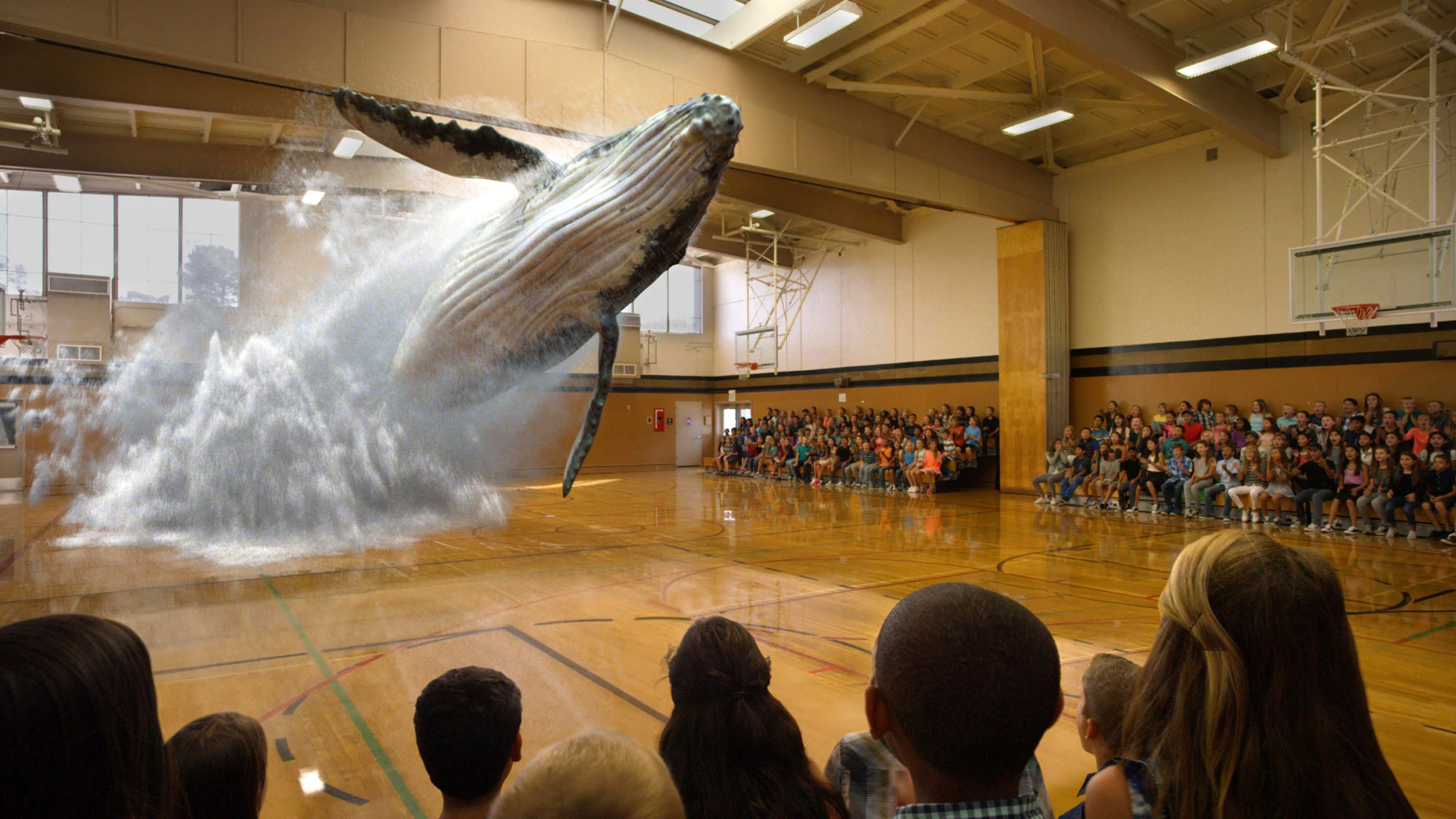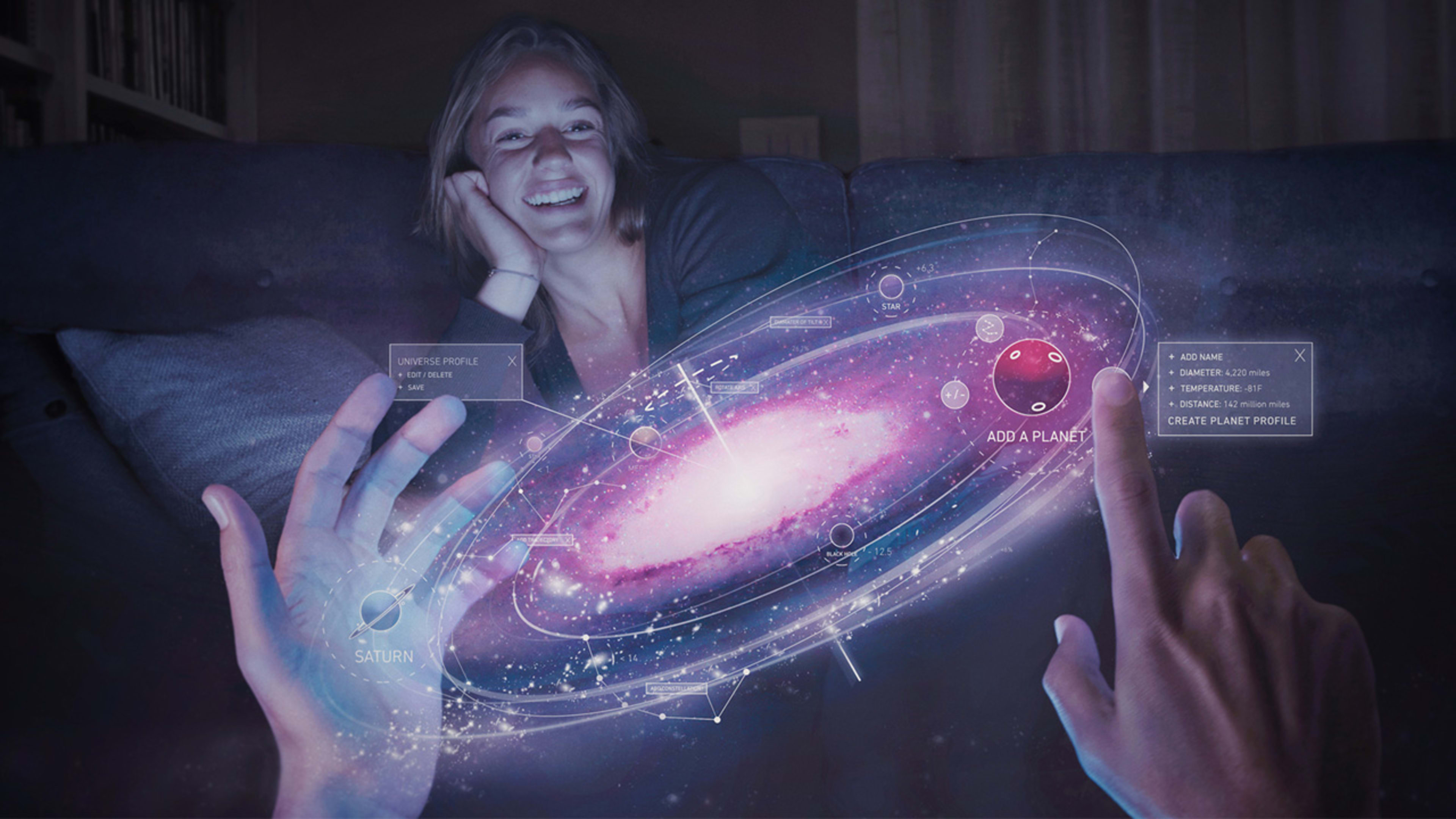Magic Leap, the intensely watched Florida-based technology startup working on a new form of augmented reality, announced Tuesday that it has raised $793.5 million in a funding round led by Alibaba. Other investors include the cadre of financial institutions that have been investing more and more in private tech companies, such as Fidelity, J.P. Morgan, Morgan Stanley, and “accounts advised by” T. Rowe Price and Wellington Management Company. Existing prominent investors such as Google and Qualcomm also made what Magic Leap CEO Rony Abovitz called in an interview this morning “strong and deep reinvestments” in the company.
During my call, though, I couldn’t help but ask Abovitz: Why make this announcement in the current climate where companies touting their rise up the unicorn leaderboard only make themselves a bigger target? “We do have certain Delaware filings to update and people will and have go through them and write the wrong things, just a bunch of speculation,” Abovitz tells me. “We don’t want a bunch of misinformation flying around.” (Rony loves you, Peter Kafka!) “If there was a way to raise this kind of capital and not talk about it in any way, that would have been nice. As a company, we’re heads down and want our first product to speak for us.”
Abovitz was particularly excited about adding Alibaba as a partner as Magic Leap’s way of creating an opportunity to enter the Chinese market. “If you look at the number of American companies who are not succeeding in China, we thought what would be the right way to do it?” he asks rhetorically. “With the right strategic partner, we can listen a lot more, learn a lot more, and understand how to enter that market in a way that is respectful and sensitive. Going it alone in China didn’t seem to make any sense, and Alibaba has a really strong presence and has expanded beyond e-commerce to a wide breadth of human experience.”

Today’s funding announcement also represents the debut of Abovitz and Magic Leap’s new name for its technology: “Mixed Reality Lightfield.” Abovitz explains, in his coy way, why he felt the company had to break out of the virtual reality-augmented reality box that the company was routinely being put into. “It’s a really nice descriptor of what we do,” he says. “Augmented reality really got attached to looking through the video screen of a mobile phone or tablet or something like Google Glass. And then virtual reality, which has largely been associated with stereoscopic headphone, whether it’s Google Cardboard, or some of the other types of devices.” Yes, some of the other types of devices. I can’t tell whether Abovitz keeps referencing Google as a way of bolstering his investor’s _______-reality platforms or subtly dissing them, but he’s very disciplined in not mentioning Oculus or Facebook in a way that he has in the past. “We’re carving out what we do, which is both different in technology and fundamentally different in experience. The signal we send is much more natural than the forms that other people know.”
So what’s the $793.5 million going to do for Magic Leap in bringing about this new reality? Abovitz is quick to note that much of the company’s shocking-for-the-fall-of-2014 $542 million second round of funding has not been spent. That money has been earmarked for moving Magic Leap from the technology stage to the product development stage and on to the pilot stage and toward a commercial release. Today’s pile of cash will “accelerate that,” he says. “It gets us well past launch.” Abovitz goes on to note that “when you look at successful computing platform launches”—note the use of the word platform here; Magic Leap is developing hardware, software, and designing the user interface and user experience for what he calls an entirely new form of contextual computing—being able to think in multiple product cycles puts us in a different capability than the typical startup.”

I ask Abovitz just what the company has achieved since the fall of 2014 and his last major press availability. “We’ve made a heavy investment in photonics,” he says, describing the technology of generating and manipulating light particles. “We’ve developed what I call a photonics chip, which Includes the design of it, novel materials, even designing the fab that will make it. That’s fundamentally important for us to deliver the experience that’s the natural fit of how the eye-brain system works. We had to build something that accommodates what your eye-brain system is used to getting, which is not available in any off-the-shelf way.” As for the company’s progress in this initiative, Abovitz says, “We have achieved mass miniaturization. We’ve gone beyond the computer simulations and one-off prototypes. We’re not on the risk side. We’re on the other side. It’s like talking about making an Intel chip versus actually making them.”
Finally, no Magic Leap would be complete without the geek-frustrating lack of detail regarding when you’ll be able to experience mixed reality. “We have an internal date that we’re driving to every day for commercial shipment, Abovitz says. “We’ll share that date when we feel it’s appropriate. We don’t want to say something in public and then change it.” (That’s Oculus dog whistle number two if you’re scoring at home.) “I know it’s unicorn-hunting season. We fully understand that it’s on us to deliver. We’re fueling up for quite an ambitious program.”
Recognize your brand’s excellence by applying to this year’s Brands That Matter Awards before the early-rate deadline, May 3.
